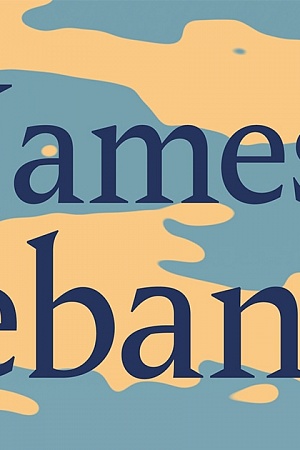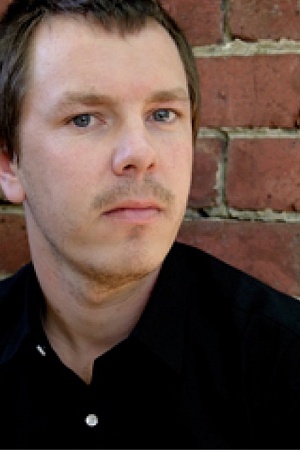State Editor's Introduction by Sarah Day | States of Poetry Tasmania - Series Two
A. E. Houseman memorably said: I could no more define poetry than a terrier can define a rat. It’s not an easy matter to justify one’s decisions when faced with numerous poems from which to make a limited selection. There’s no programmatic guide to what makes a poem successful although the impact of a good poem is something we all know and recognise. Generally it has something to do with registering a sense of shock – it might be the shock of the new, unexpected or strange, or it might be the shock of the familiar – it can take one off guard to be confronted by what one knows but didn’t know one knew. And what creates the shock? This is different with every poem. It may be linguistic – the relationship between the words or the acoustics of words and lines; it may be the imagery or information or impressions communicated; it may be the tensions and dynamics set up between all or some of these elements that results in a poetic imperative. The ineffable subtleties at work in a poem are endlessly unpredictable; it’s that unpredictability that makes poetry so compelling. You never know in what way a poem is going to reach you.
Not unexpectedly for an island known internationally, for its wildness, wilderness, and natural beauty, many of the Tasmanian poems submitted responded to nature in some way as is shown in a number of the selected poems.
James Charlton’s poems are a seamless continuation of the preoccupations of his two most recent books: So Much Light, a collection of poems, and his ambitious and absorbing work of ‘theopoetic’ philosophy titled Non-Dualism in Eckhart, Julian of Norwich and Traherne (Bloomsbury). Mind, matter, the finite and the infinite are intermeshed in his poems and thinking:
A tract of land becomes inner experience/ the pronouns ‘I’, ‘me’ and ‘my’ dissolve in the dusk, / and come back/ changed. (‘This’)
James Charlton makes an art of distillation of what is thought, observed or experienced. The diminutive scale of the final poem 'Choir Practise' belies the weight and thrust of its substance.
Anne Kellas’s new poems continue in the vein of her most recent book: The White Room Poems. ‘As You Left Home One Winter’s Night’ is an address to her son on the fateful night he leaves home for a journey from which he will not return. Her poems about her son’s death are a synthesis of fragility and strength, I read these poems with wonder and admiration that poetry could be born of such pain. Stylistically Anne Kellas moves effortlessly between the surreal or disembodied and the meticulous rendering of realism and quotidian detail as she freeze-frames moments of emotional experience.
Jim Everett-puralia meenamatta is an Aboriginal Elder, spokesman, writer, and activist who lives on Cape Barren Island. His poems range from the metaphorical and cadenced line (as in ‘Ghost Nets’ and ‘Waterlines’) to confronting and didactic ballads whose strength and intensity lie in the vernacular of the narrative voice. These are affecting, unvarnished poems about Aboriginal culture and spirituality placed in the context of colonial and environmental history and politics; they are passionate and angry rejoinders to the impact of the past and to the blithe views of many non-Aboriginal Tasmanians which continue in the present.
Gina Mercer has published four collections of poetry that span the social, political, domestic, and, more recently, natural world. These new poems illustrate her characteristic literary verve and eschewing of the predictable. There’s often levity and irreverence present in her work, even in the deeply serious, for example, in the poem about her sister’s death: ‘After, There are the Birds’. Technical sleight of hand is evidence of the honing of craft over a long period. Her penetrating eye often opts for the skewed angle rather the straight line.
Ben Walter is the youngest writer in this selection. He is an accomplished author of ‘lyrical and experimental’ fiction as well as poetry. His recent book: A Guide to Bushwalking in Tasmania transfers a bushwalking guide into novelistic form. The poems in this selection imaginatively inhabit the landscape their author inhabits physically; language in these poems embodies the elemental and metaphysical in nature at times giving voice to the landscape itself. He is adept at the understated lyric aphorism such as:
Well, / rules drift out with tides,
‘Four Limpets’
Christiane Conésa-Bostock was born in France. She has the uncommon and enviable status of being a poet in more than one language. Her poems selected here are part of an enigmatic sequence about the life and art of Claude Monet. In these poems, through multiple points of view, she brings new light to images that many of us may have thought familiar, creating her own rather dream-like world through these ekphrastic works.
Peter Rose and ABR are to be thanked for establishing the States of Poetry series. There has been no precedent I can think of for this opportunity to view, through the luxurious lens of numbers of poems, samples of the current work being written in each state. I wish the enterprise well and hope it continues into the future.











Leave a comment
If you are an ABR subscriber, you will need to sign in to post a comment.
If you have forgotten your sign in details, or if you receive an error message when trying to submit your comment, please email your comment (and the name of the article to which it relates) to ABR Comments. We will review your comment and, subject to approval, we will post it under your name.
Please note that all comments must be approved by ABR and comply with our Terms & Conditions.